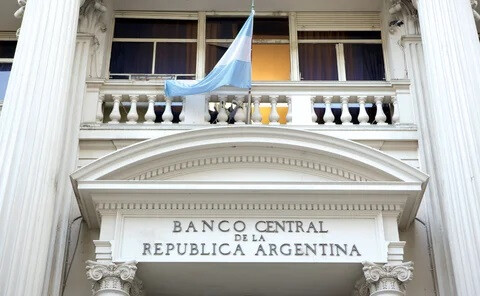
Buenos Aires, Argentina – The Argentine government plans to issue up to $1 billion (approximately 1.38 trillion KRW) in fixed-rate sovereign bonds on the international financial market to strengthen fiscal soundness and boost foreign exchange reserves. This auction, scheduled for Wednesday local time, will be a crucial test of how President Javier Milei's government's strict fiscal austerity policies are perceived by international investors.
Milei Government's Fiscal Austerity and Bond Issuance Background
Since taking office in December 2023, President Javier Milei has implemented powerful "shock therapy"-like austerity policies to stabilize Argentina's economy, which has suffered from chronic high inflation and fiscal deficits. His administration has drastically reduced government ministries, cut public spending, eliminated energy and transportation subsidies, and pushed for the privatization of state-owned enterprises. As a result of these efforts, Argentina achieved a fiscal surplus in the first quarter of 2024, marking a turnaround after 15 years, and demonstrating tangible progress.
This bond issuance in the international market is seen as part of a strategy to build on these fiscal health improvements, attract foreign capital to increase foreign exchange reserves, reduce the burden of external debt repayment, and lay the foundation for economic recovery. Argentina has repeatedly faced currency crises and debt default scares due to insufficient foreign exchange reserves, making foreign exchange market stabilization one of the Milei government's key priorities. As of March 2025, Argentina's foreign exchange reserves stood at $18.799 billion, which is still not considered sufficient.
Past and Present of Argentina's Sovereign Bond Market
Argentina has a history of frequent defaults, earning it the moniker of a "problem child" in international financial markets. It declared the largest sovereign debt default in history during the 2001 Argentine financial crisis, and has since undergone multiple debt restructurings and default scares. Due to this historical background, Argentine bonds have been perceived as high-risk investment assets.
However, the Milei government's fiscal reform efforts and improved relations with the International Monetary Fund (IMF) are beginning to change this perception. The IMF is sending positive signals, forecasting Argentina's economic growth rate at 5% for 2025. Additionally, the Argentine government continues to negotiate the restructuring of its existing $44 billion debt with the IMF, with the possibility of securing additional bailout funds. Indeed, in April 2025, the Milei government shared positive news that it could secure a $20 billion bailout from the IMF. These factors will be critical variables in determining the success of this bond issuance.
Significance and Ripple Effects of the Bond Issuance
This $1 billion bond issuance holds several meanings beyond mere fundraising.
Firstly, it will serve as a barometer for measuring the recovery of international investor confidence. If Argentina successfully raises funds in the international market despite its chronic economic problems and history of defaults, it could signal that the Milei government's economic reform policies are gaining a certain level of trust. This could positively impact the attraction of further foreign capital in the future.
Secondly, it can contribute to stabilizing the value of the peso by helping to boost foreign exchange reserves. Argentina has suffered from an unstable peso value due to chronic foreign exchange shortages, which has been a major cause of high inflation. By securing foreign currency through dollar-denominated bond issuance, the central bank's capacity to intervene in the foreign exchange market will expand, helping to reduce exchange rate volatility and curb inflation.
Thirdly, it can alleviate government fiscal pressure and secure funds for improving public services and infrastructure investment. While public spending has been drastically cut due to austerity measures, the funds secured from this bond issuance can be allocated to some necessary sectors, contributing to economic recovery.
Fourthly, it could positively influence negotiations with the IMF. Successfully raising funds in the international market demonstrates the Argentine government's commitment and ability to improve fiscal soundness, which could be advantageous in discussions for additional IMF support or easing existing loan conditions.
Challenges and Future Outlook
Of course, the success of this bond issuance does not mean that all of Argentina's economic problems will be solved. High inflationary pressure persists, and social resistance to the Milei government's stringent austerity policies remains considerable. Large-scale protests and strikes continue as cuts to public services and wage reductions exacerbate the hardship of citizens. Such social instability could negatively impact investor sentiment.
Furthermore, external factors such as the global economic situation and volatility in raw material prices also significantly affect the Argentine economy. Argentina's high dependence on agricultural exports makes it vulnerable to fluctuations in international agricultural prices.
Nevertheless, this bond issuance is an important attempt by the Argentine government to normalize its relationship with international financial markets and rebuild its economy. A successful issuance is expected to secure international support for the Milei government's economic reforms and lay the groundwork for Argentina to emerge from the "default swamp" and move towards sustainable growth. Moving forward, attention will be focused on whether the Argentine government can maintain fiscal soundness while ensuring social stability and simultaneously generating economic growth momentum.
[Copyright (c) Global Economic Times. All Rights Reserved.]




























